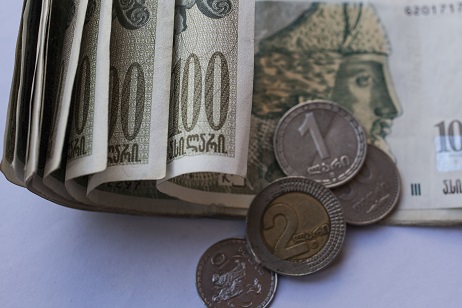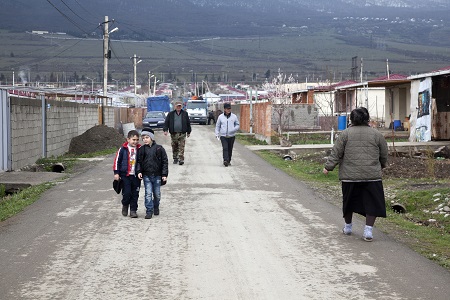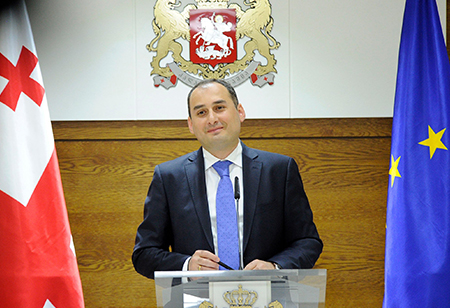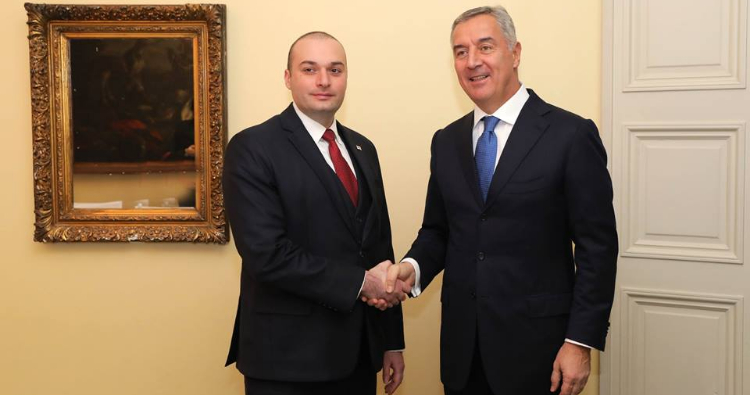World Bank Group: Georgia’s economy will grow for next three years

Georgia's economic growth is expected to hit three percent in 2016, 4.5 percent in 2017 and five percent in 2018, forecasts the World Bank Group.
In its annual report Global Economic Prospects on the world economy the World Bank Group has projected Turkmenistan will experience the highest growth (8.9 percent) this year among the European and Central Asian (ECA) countries followed by Uzbekistan (7.5 percent) and Tajikistan (4.8 percent).

Despite wide regional variation, the World Bank Group believed the majority of ECA countries were highly open to global trade.
The Bank said the Euro Area was the single largest trading partner and source of financial flows to ECA.
The EU is the primary source of remittances for the Western Balkans (Albania, Bosnia and Herzegovina, Kosovo, FYR Macedonia, Montenegro, Serbia) and to a lesser extent, for Armenia, Georgia, and Moldova. They amount to around 10 percent of GDP in Kosovo and Moldova, 7 percent of GDP in Albania, and about 2 percent of GDP in Armenia and Georgia,” said the report.
Meanwhile, the World Bank Group reported these countries increased trade with China as well.
Over the medium term, trade with China should continue to grow as new pipelines between the major energy exporters (Kazakhstan, Uzbekistan, Russia) and China are constructed, and the on-going negotiations of free trade agreements between China, Georgia, and Moldova are approved and implemented,” said the report. As for Russia, the report revealed within-region ties to Russia were particularly strong regarding trade and remittance flows.
Remittances from Russia represent an important source of income for several regional economies in Central Asia (the Kyrgyz Republic, Tajikistan, Uzbekistan), South Caucasus (Armenia, Georgia), and Eastern Europe (Moldova, Ukraine),” said the report.
Meanwhile, the report revealed the outbound tourism from Russia was an important source of income for several countries in the region, including Bulgaria, Georgia, Montenegro, and Turkey.
The World Bank Group said Russian growth stocks have had strong effects on Belarus, Kazakhstan, Tajikistan, and, to some extent, Georgia and the Kyrgyz Republic.
In Belarus, Kazakhstan, and Tajikistan the spillover effects on Gross Domestic Product (GDP) growth are 0.6 percent to two percent, respectively. The effects are less significant in Georgia and the Kyrgyz Republic, and not significant in Moldova and Uzbekistan,” said the report.
Meanwhile, the World Bank Group said the global growth was "disappointed” in 2015, "slowing to 2.4 percent, and is expected to recover at a slower pace than previously envisioned.”
As for the year 2016, the World Bank Group project the growth would reach 2.9 percent, "as a modest recovery in advanced economies continues and activity stabilises among major commodity exporters.”
The World Bank’s January 2016 Global Economic Prospects forecasted a more protracted slowdown across large emerging markets could have substantial spillovers to other developing economies, and eventually hold back the recovery in advanced economies.
Accordingly, a broad-based slowdown across developing countries could pose a threat to hard-won gains in raising people out of poverty, the report warned.
More than 40 percent of the world’s poor live in the developing countries where growth slowed in 2015," said World Bank Group President Jim Yong Kim.
Developing countries should focus on building resilience to a weaker economic environment and shielding the most vulnerable. The benefits from reforms to governance and business conditions are potentially large and could help offset the effects of slow growth in larger economies,” he added.
 Tweet
Tweet  Share
Share










